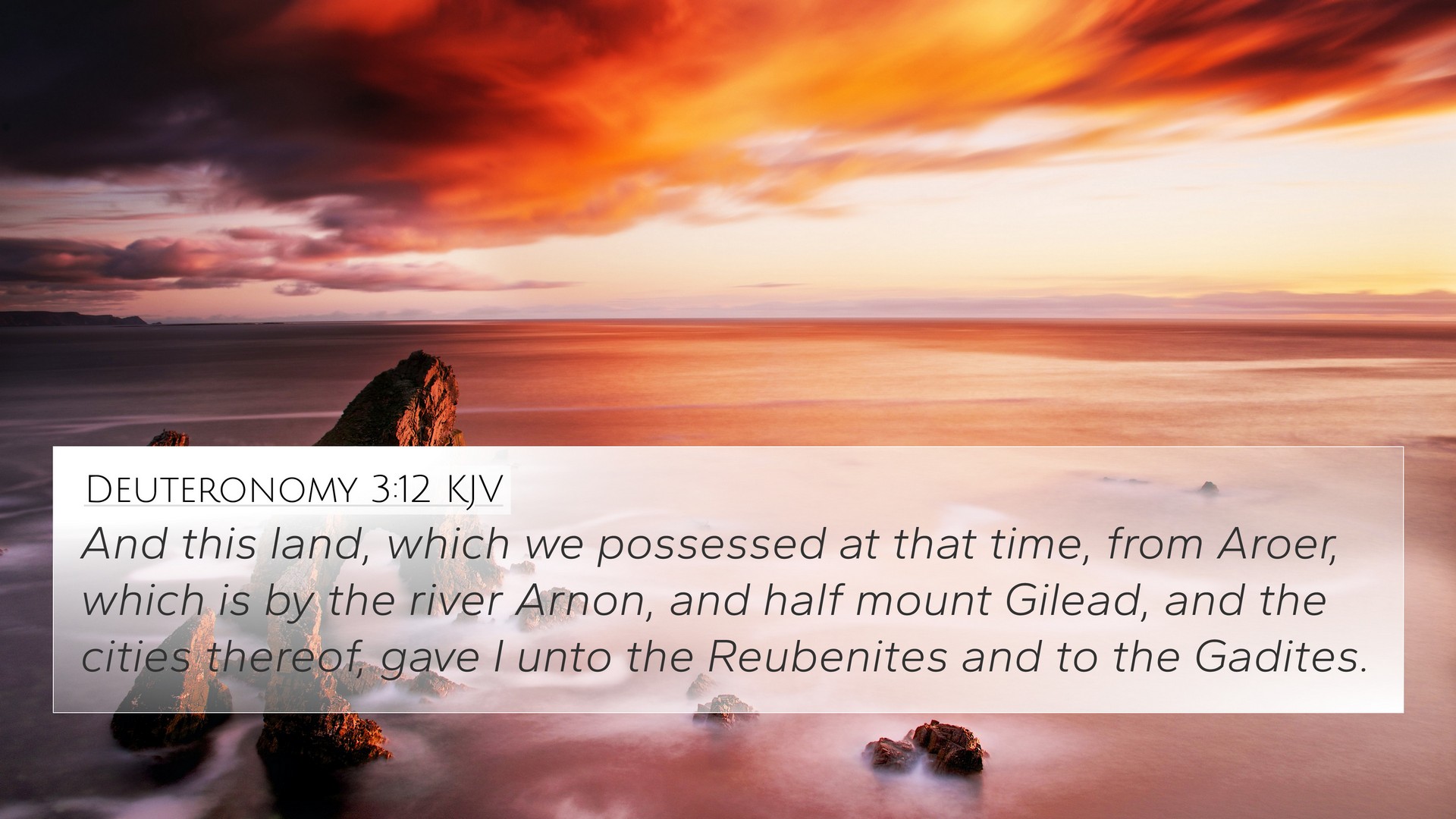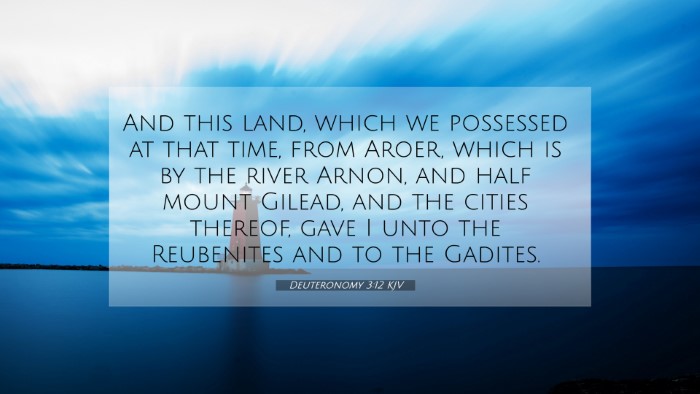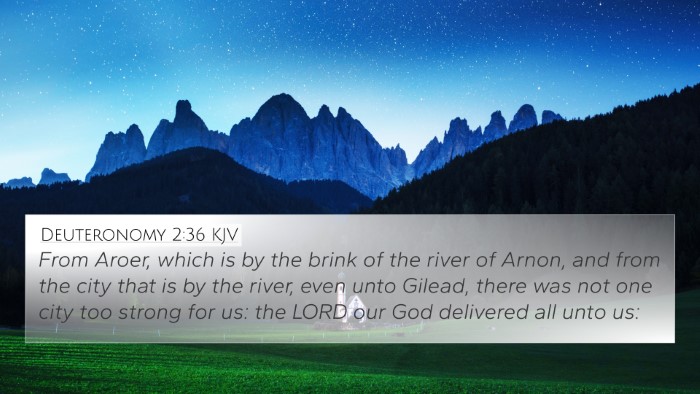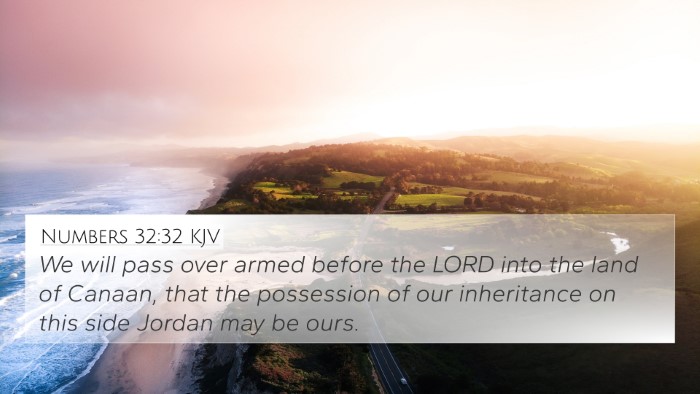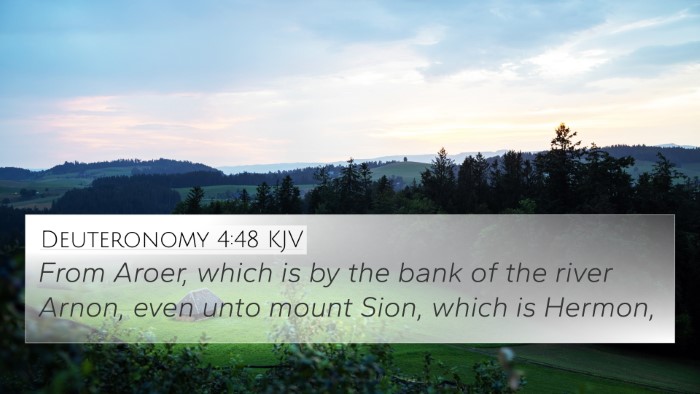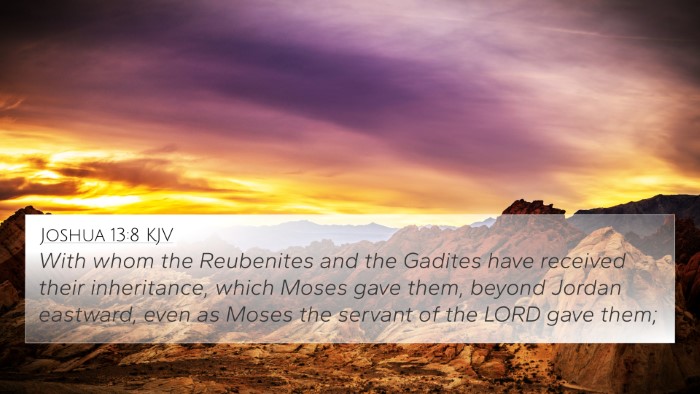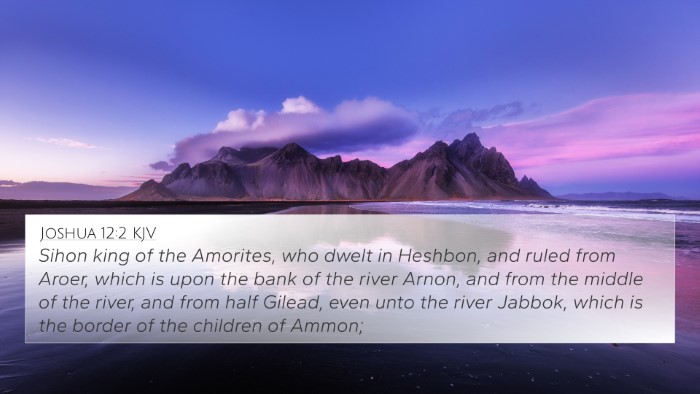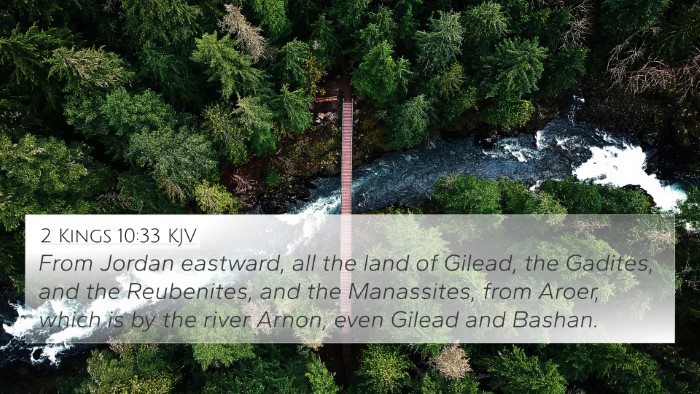Understanding Deuteronomy 3:12
Verse Context: Deuteronomy 3:12 states, "And this land, which we possessed at that time, is called the region of Aroer, which is by the river Arnon; and half Mount Gilead, and the cities thereof, gave I unto the Reubenites and to the Gadites." This verse highlights the distribution of lands among the Israelite tribes after their formidable encounters in battle.
Verse Meaning
The allocation of land among the tribes symbolizes God's provision and fulfillment of His promises to Israel. Each tribe receives a portion based on their identity and role within the larger nation of Israel.
Insights from Commentaries
- Matthew Henry notes that the division of land illustrates God's just and merciful nature, as He provides for His people in a manner that reflects His promises made to their ancestors.
- Albert Barnes emphasizes the significance of the geographical details mentioned, bringing attention to the importance of specific territories in defining tribal identities and inheritance.
- Adam Clarke comments on the strategic nature of the land distribution, noting how each tribe's inheritance plays a role in the collective strength and stability of Israel as a nation.
Thematic Connections and Cross-References
Deuteronomy 3:12 acts as a crucial point in understanding the overall narrative of Israel’s journey. Here are some relevant thematic Bible verse connections:
- Numbers 32:1-5: Details the request of the Reubenites and Gadites for land east of the Jordan, illustrating their motivations and intentions.
- Joshua 13:8-32: Provides further clarity on the inheritance of the tribes, reinforcing the fulfillment of God's promises regarding land.
- Deuteronomy 2:24: Discusses the conquest of lands prior to the distribution, emphasizing God's guidance through their journey.
- Exodus 23:30: Contains God's promise that He would progressively give the Israelites the land of Canaan.
- Hebrews 11:9: Refers to the faith shown by Abraham as he looked for a city and inheritance, tying the spiritual promise to the physical land given to Israel.
- Psalm 78:55: Speaks of God driving out nations before His people, showcasing God's role in establishing Israel in the land.
- Romans 4:13: Discusses how the promise of land extended through faith to Abraham and his descendants underlines the continuity of God's covenant.
- Micah 2:5: Reflects on the inheritance of Israel's land and the significance of maintaining their rightful claims.
Cross-Referencing Biblical Texts
Understanding Deuteronomy 3:12 can be enriched through various tools for Bible cross-referencing and Bible study methods:
- Bible Concordance: A resource to find specific words and their occurrences throughout scriptures, aiding thematic studies.
- Bible Cross-reference Guide: Compiles related verses to deepen the understanding of scriptural connections.
- Cross-reference Bible study: Encourages examining related verses to uncover deeper meanings and insights.
- Bible chain references: Helps follow a theme or topic throughout the Bible, linking verses across both Testaments.
- Comprehensive Bible cross-reference materials: Provides extensive lists of verses that relate to one another, enhancing study effectiveness.
Identifying Connections
When studying Deuteronomy 3:12, consider how it relates to other biblical contexts:
- How to find cross-references in the Bible: Explore various passages that share themes of inheritance, God's promises, and land distributions.
- Comparative study of Pauline epistles: Investigate the understanding of inheritance as discussed by Paul, examining parallels with Old Testament promises.
- Cross-referencing Psalms with New Testament teachings: Analyze reflections of God's faithfulness in the context of land and inheritance across the scriptures.
- Bible verses related to faith in God's promises: Look for verses that illustrate the importance of trust in God's deliverance and provision.
Conclusion
Deuteronomy 3:12 serves as a testament to God's unwavering commitment to fulfill His covenant with Israel. Through collective understanding of scriptural connections and inter-Biblical dialogue, readers gain insight into God’s faithfulness in guiding His people toward their promised inheritance.
